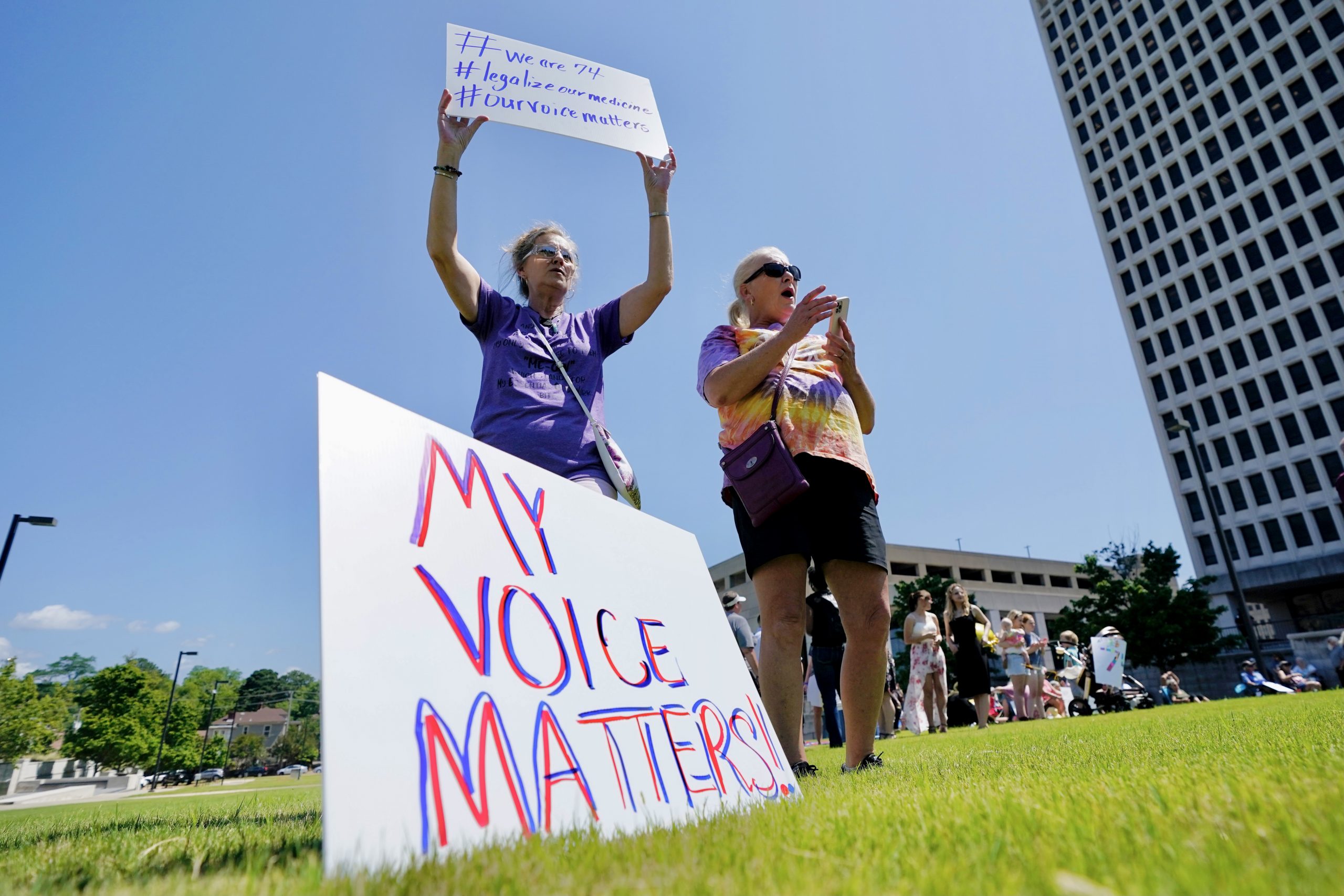After a citizen-sponsored ballot initiative threatened one powerful official’s personal interests, the Mississippi Supreme Court granted relief to the politician as it struck down the state’s entire Citizen Initiative and Referendum process on a technicality. That was in 1922. Now, 99 years later, citizens are accusing the state’s high court of once more dimming democracy in the Magnolia State.
Mississippi voters finally regained the right to make changes by ballot-initiative after a seven-decade stint without it. But last month, the Mississippi Supreme Court once more cited a technicality as it nullified Section 273(3), the state constitution’s 1992 ballot-initiative law, after the mayor of Madison, Miss., objected to a voter-approved medical-marijuana law.
“When the Section 273(3) initiative was approved in the 1992 election, it was approved by an astounding 70% of the popular vote, indicating continuing broad support for the provision. Now, sadly, history appears to be repeating itself,” a group of Mississippians said in a May 28 court filing as they asked the high court to reconsider its decision.
In a statement late Monday night, Kelly Jacobs, the co-chair of an early voting ballot-initiative campaign that was underway until last month’s ruling halted it, said a rehearing would allow a chance for citizens to present “new information” and “arguments” to the justices.
“Our goal is to have a rehearing. … We want our Constitution to remain intact and the certified election results of Initiative 65 to be enforced,” Jacobs said. Initiative 65 is the medical-marijuana initiative that more than two-thirds of voters approved last November.
‘Many Feel As Though Their Voices Are Not Being Heard’
In October 2020, mere days before that election, Madison Mayor Mary Hawkins Butler told SuperTalk radio host Paul Gallo that, should voters adopt Initiative 65, she had already begun exploring legal avenues for blocking it in order to keep “pot shops” out of her city. She enlisted a lawyer who, she told Gallo, “found the flaw” in Section 273(3), the 1992 voter-initiative law.

The language of Section 273(3) says that citizens collecting signatures to get an issue on the ballot must collect one-fifth of their signatures from each of the state’s five congressional districts. But because the state lost a congressional district after the 2000 Census, lawyers for Butler told the Mississippi Supreme Court, it is no longer possible for citizens to collect enough signatures to place an issue on the ballot, making Initiative 65 invalid.
Like his predecessors, Mississippi Secretary of State Michael Watson believed the process was still valid so long as petitioners collected signatures from each of the former five congressional districts as the lines existed before 2000 redistricting. Initiative 65 petitioners did so, collecting more than twice as many signatures as required to put an issue on the ballot from across the state. But on May 14, the Mississippi Supreme Court agreed with Butler’s argument.
“Because Initiative 65 was placed on the ballot without meeting the section 273(3) prerequisites for doing so, it was placed on the ballot in violation of the Mississippi Constitution,” Justice Josiah D. Coleman wrote on behalf of the court’s 6-3 majority. “Whether with intent, by oversight, or for some other reason, the drafters of section 273(3) wrote a ballot-initiative process that cannot work in a world where Mississippi has fewer than five representatives in Congress.”
Associate Justice James D. Maxwell II issued a sharp critique of the Court’s 6-3 decision in his dissent, asserting that, by stripping the ballot-initiative process from voters, the Court had stepped “completely outside of Mississippi law to employ an interpretation that not only amends but judicially kills Mississippi’s citizen initiative process.”
On May 27, Secretary Watson said in a statement that, though he had “strongly considered petitioning the Supreme Court for a rehearing of its decision, my team and I reached the conclusion (that) doing so would simply delay the inevitable” and that his team believed it “would be an unsuccessful effort.”
“Rather than giving a sense of false hope and spending taxpayer dollars to no avail, I strongly encourage the Governor to reconvene the Legislature in an effort to quickly preserve the will of Mississippians on a few important issues,” he said, citing medical marijuana and voter-approved eminent domain and voter ID laws. “… In talking with voters around the state, many feel as though their voices are not being heard. We work for them and we should do all we can to honor their decisions at the ballot box.”
‘They Don’t Trust The People’
In its ruling last month, the Mississippi Supreme Court, whose members are elected by voters, also suggested that legislative action would be required to resuscitate the ballot initiative law in order for it “to work in today’s reality” of a state with only four congressional districts.
In their May 28 court filings, volunteers for Initiative 77, which would legalize recreational marijuana if successful, and Initiative 78, the early voting effort, asked the court for permission to intervene with a new hearing in Watson’s absence.
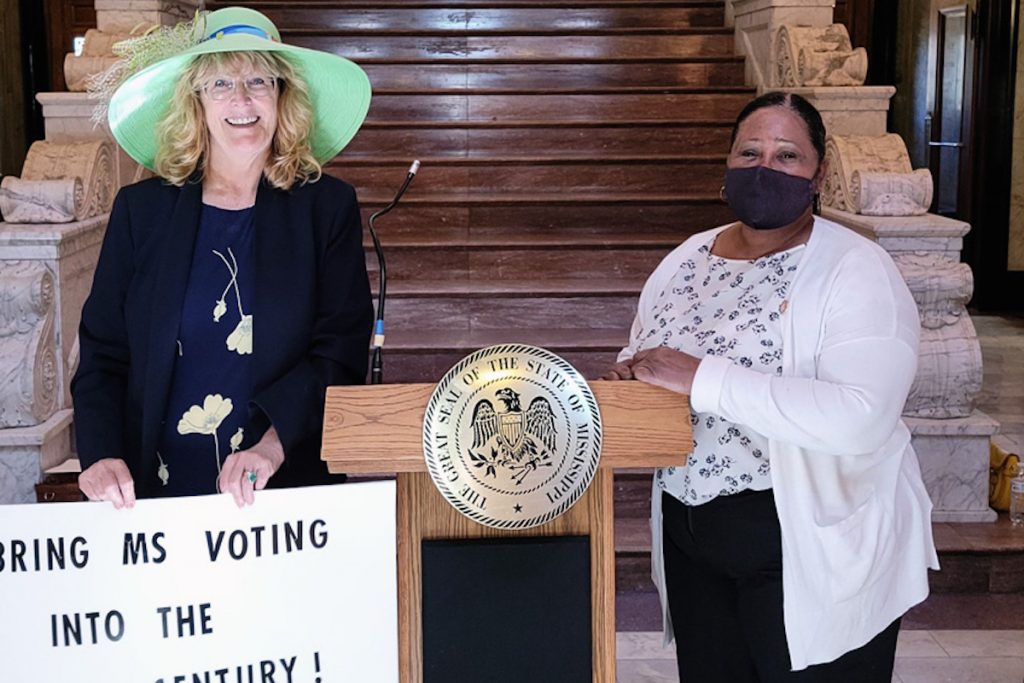
“When I cited legislative inaction as my reason for filing a ballot initiative for 10 days of early voting, I never imagined that the Mississippi Supreme Court would again nullify the constitution it is supposed to protect. That’s unconstitutional,” Mississippi House Rep. Hester Jackson-McCray, D-Horn Lake, said in a statement last night.
The lawyer for the groups seeking a rehearing, Aphrodite Kavyas McCarthy, said in a May 28 filing that the Mississippi Supreme Court’s May 14 ruling in Watson v. Butler “unconstitutionally disenfranchised those electors who successfully passed every ballot initiative approved since 2001 which are arguably now in jeopardy.”
“The Court’s decision in this case has voided a fundamental right granted to Mississippi electors who have voted from 1992 to the present as well as to all those electors who will vote into the foreseeable future,” the volunteers’ motion to intervene reads. “… The Secretary of State failed to raise all valid defenses, both legal and factual, that could have led to a different decision being rendered had those arguments been received by this court.”
“Intervention is especially and urgently warranted because since the decision, the State of Mississippi has failed to show any interest in protecting the rights of its citizens and defending our rights as granted by Section 273.”
Though some state leaders, including House Speaker Philip Gunn and Lt. Gov. Delbert Hosemann, the Senate president, have said they would support a legislative fix to the ballot initiative law. But many across the state remain skeptical that the Legislature will provide an acceptable remedy, either to the ballot initiative law or in creating its own medical-marijuana program.
Last month, Sen. Hob Bryan, a Democrat from Amory, told Mississippi Free Press State Reporter Nick Judin that he considers ballot initiatives “a terrible way to make policy” and that he hopes the governor does not call a special session to revive it.
Mississippi Sen. Chris McDaniel, a Republican from Ellisville, wants the Legislature to restore the ballot-initiative process by making no changes other than to update the language relating to the number of congressional districts. But in an interview with the Mississippi Free Press, he warned that, even if lawmakers do decide to revive the initiative process, some will attempt to make it more difficult for citizens to place issues on the ballot.
“There’s obviously an element within the Legislature that doesn’t like the ballot-initiative process, and you’re starting to hear these rumblings right now—they’re saying it’s too easy,” Sen. Chris McDaniel of Ellisville told the Mississippi Free Press last month. “But what they’re really saying is they don’t trust the people. And when politicians don’t trust the people, that’s a problem. So they’re going to do everything in their power to deflect and circumvent the legislation.”
The Mississippi Supreme Court’s ruling also killed a ballot initiative signature-gathering effort to put Medicaid expansion on the ballot and another to give voters the opportunity to decide whether or not to bring back the old Confederate-themed 1894 state flag that the Legislature retired last year.
‘History Does In Fact Repeat Itself’
For skeptics that the Legislature will remedy the issue, a century’s worth of legislative maneuvers helps bolster their case for not trusting that lawmakers will follow through.
“It is said that history does not repeat itself, but that it rhymes,” the Initiative 77 and 78 volunteers’ Motion For A Rehearing filing states. “However, in the case of Mississippi and what happens when the will of the majority is opposed by the powerful few, one could make the argument that history does in fact repeat itself.”
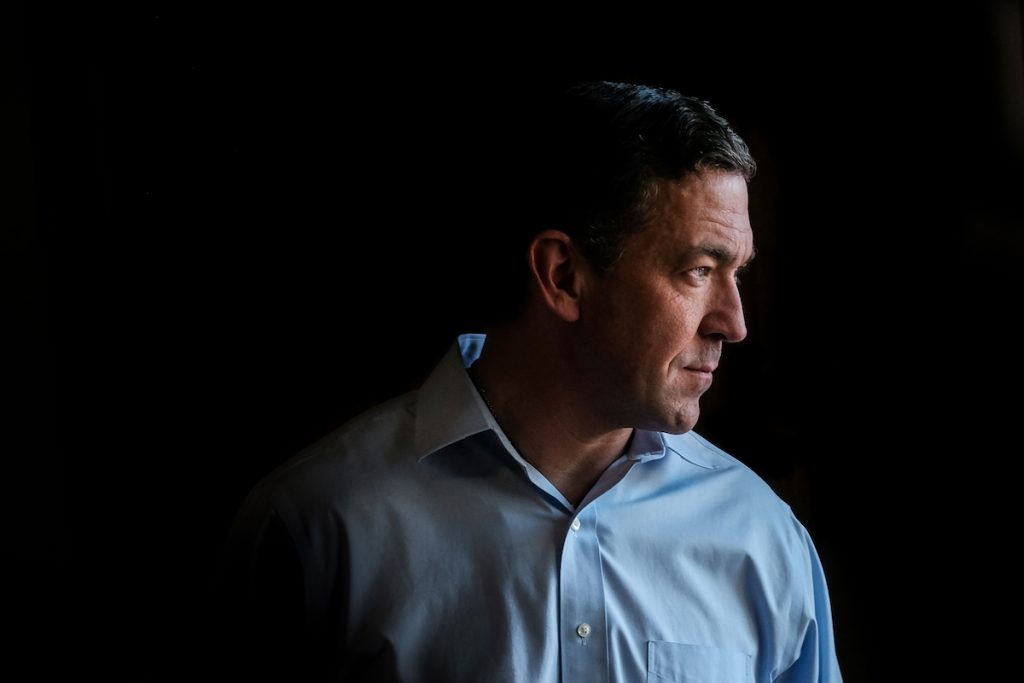
Since at least 1912, the document recounts, Mississippi citizens have sought the option of a ballot-initiative process “to hold their leaders accountable.”
“This spirit on the part of the people has never faltered, but because achieving this right requires the consent of two parties, i.e., the voters and the Legislature, it has not been an easy task,” the filing reads. “Then, as now, some in the legislative leadership over the years have been strongly opposed to the people having this power and (have) been opposed to accountability, hiding behind the lack of a process.”
After years of efforts, the document continues, the Legislature adopted a referendum in 1914 that asked voters to approve or reject the creation of an initiative and referendum Process. Among those who could vote, which did not include women or Black citizens at the time, 69% approved the Initiative and Referendum Amendment.
In 1916, the Mississippi Legislature approved a resolution to formally enshrine the amendment into the Mississippi Constitution, including the declaration that “the people reserve to themselves the power to propose legislative measures, laws, resolutions and amendments to the constitution, and to enact or reject the same at the polls independent of the legislature; and also reserve the power, at their own option, to approve or reject at the polls any part of any act or measure passed by the legislature.”
“The first power reserved by the people is the initiative … . The second power reserved by the people is the referendum,” Section 33 of the Mississippi Constitution read in 1917.
These new powers immediately came under fire, though. In the 1917 Howie v. Brantley case, opponents challenged the validity of the Initiative and Referendum Amendment; the Mississippi Supreme Court rejected the claim, though, and determined that the law had been properly ratified.
The decision “settles the matter finally in this state,” Mississippi Assistant Attorney General Lamar F. Easterling, who had defended the law, announced the next day. But the court would change its mind five years later.
‘The People In Their Sovereign Capacity’
In 1922, Mississippi residents noticed that State Revenue Agent Stokes V. Robertson was amassing a stunning $40,000 annual salary at taxpayers’ expense—about $635,000 in today’s money. Using their relatively new ballot-initiative process, a group of outraged citizens sought to use direct democracy to slash Robertson’s exorbitant salary.
As Mayor Mary Hawkins Butler would do to protect her local zoning authority a year shy of a century later, Robertson asked the courts to kill the entire initiative process in order to preserve his salary. In court, he pointed to a passage in Section 273 of the Mississippi Constitution, which at the time said that any amendments to the constitution’s text must “be submitted in such manner and form that the people may vote for or against each amendment separately.”
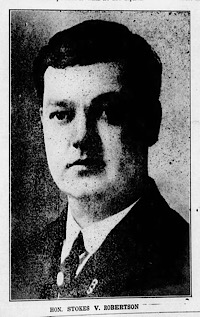
The Initiative and Referendum Amendment that the Legislature asked voters to adopt or reject in 1914, Robertsion claimed, violated Section 273 because it actually bundled two amendments into one amendment. It did so by creating both an initiative process for amendment to the state constitution and a referendum process for repealing or creating legislation, he argued.
In a reversal since its 1917 ruling, the court agreed with Robertson. Even though more than two-thirds of voters had approved the Initiative and Referendum Amendment, the Mississippi Supreme Court pronounced direct democracy “unconstitutional and void” in its 1922 Power v. Robertson ruling, concurring with his reasoning that, in practice, it amounted to “more than one amendment.” Robertson kept his $40,000-per-year salary.
Even as the court killed the initiative process almost a century ago, the justices wrote that the Mississippi constitution “is the product of the people in their sovereign capacity” and that it “was intended primarily to secure the rights of the people against the encroachments of the legislative branch of the government.”
The Legislature could, the court inferred, remedy its ruling by sending two new amendments to voters to allow them the chance to resurrect the processes for adopting or repealing laws and for amending the state constitution.
“For reasons unbeknownst to us, the Mississippi Legislature declined to remedy the technicality cited by this Court over the next (70) years, in spite of this Court’s holding, and Mississippians had no means to correct the process and restore their rights,” attorneys for the volunteers behind Initiative 77 and Initiative 78 said in the May 28, 2021, Motion For A Rehearing in Watson v. Butler.
‘Remove Not The Ancient Landmark’
On March 28, 1990, Mississippi Attorney General Michael C. Moore and two Mississippi House representatives, Raymond Vecchio and Mississippi House Rep. Oliver Diaz (later a Mississippi Supreme Court justice), presented Secretary of State Dick Molpus with an initiative petition to repeal Section 98 of the Mississippi Constitution, which said “no lottery shall ever be allowed” in the state.
Molpus rejected the petition, citing the Mississippi Supreme Court’s 1922 ruling in Power v. Robertson. The next day, the petitioners filed a lawsuit in Hinds County, urging the courts to reverse the 1922 ruling. The case made its way to the Mississippi Supreme Court in 1991.
Moore made the case that Power v. Robertson was wrongly decided, and the Mississippi Supreme Court agreed that his “point packs punch.”
“Plaintiffs argue, not unpersuasively, that as an original proposition Power (mis)read into the Constitution an erroneously restrictive interpretation of Section 273,” the state’s high court said in its 1991 opinion. “The fact that Brantley by a divided Court read Section 273 so as to uphold IR (Initiative and Referendum) and that five years later Power by a divided Court did the opposite suggests the possibility that—as an original proposition—the point is fairly debatable.”
Still, the majority said in its ruling, “weighty considerations of finality and repose counsel restraint in the face of sixty-eight year old precedent, even if we be convinced it was wrongly decided.”
“In most settings the mere fact that a prior ruling may have been wrong—even badly wrong—is not enough to move the judicial hand. … One stick in the bundle is that long established legal interpretations ought not lightly be disturbed. We are told of biblical origins: ‘Remove not the ancient landmark, which the fathers have set.’”
‘The People Reserve Unto Themselves …’
Though the high court declined to reinstate the Initiative and Referendum Amendment, the issue drew statewide attention during the 1991 election season. In 1992, the Legislature approved Senate Concurrent Resolution No. 616, which placed the issue on the ballot. Like the Initiative and Referendum Amendment that earned 69% support from voters in 1914, Section 273(3), which resurrected the right of citizens to amend the constitution via ballot initiative, won the approval of 70% of voters in 1992.
“The people reserve unto themselves the power to propose and enact constitutional amendments by initiative,” begins the now-toothless 1992 constitutional amendment that, one month ago, the Mississippi Supreme Court rendered null.

In its ruling in Watson v. Butler last month, the Mississippi Supreme Court’s majority claimed that it relied purely on the “plain meaning of the words and terms” to arrive at its decision because it could know the intent of the lawmakers who drafted Section 273(3). Its drafters could have, the majority suggested, intended for the ballot initiative process to sunset in the event that the number of congressional districts changed.
“The only evidence of the intent of the drafters that passed the amendment process is the intent found in the text itself, and … that text clearly evidences an intent to cap the signatures at twenty percent of qualified electors of a single congressional district,” the Watson v. Butler majority ruled.
In their motion for a rehearing, McCarthy criticized that logic.
“Because the drafters were using the congressional districts in place at the time, the only intent one can surmise from this provision is the intent of the Legislature and the voters that the ballot initiative demonstrate broad, geographic diversity in its support,” the motion says. “Five districts happened to be an easy selection to make because it was a defined, contiguous, geographic area that happens to be also one of the most well-known defined geographic areas beyond the county division, by the voters.”
If those behind the 1992 amendment had “wished to sunset the subject ballot initiative provision, it would have said so,” McCarthy argued.
“There is simply no rational basis for an argument that the authors of the amendment believed that somehow the number five was a magical triggering number and any others, 3, 4, 6, 7, or even 8, … were incompatible with a constitutional right.”
Lawyer Accuses Court Of ‘Legislating From The Bench’
The motion for a rehearing argues that the court made four key “errors of law.” One of those “errors,” the filing says, is that it “lacks the authority to strike down any provision of the … founding document from whence it derives its sole power and authority.”
“The judiciary is a creature of the constitution and as such creature, it is tasked with interpreting and applying the constitution,” the motion says. “It cannot void the constitution. … In short, it cannot both nullify or erase the authority and will of the voters and still be in compliance with the authority granted to it under the constitution.”
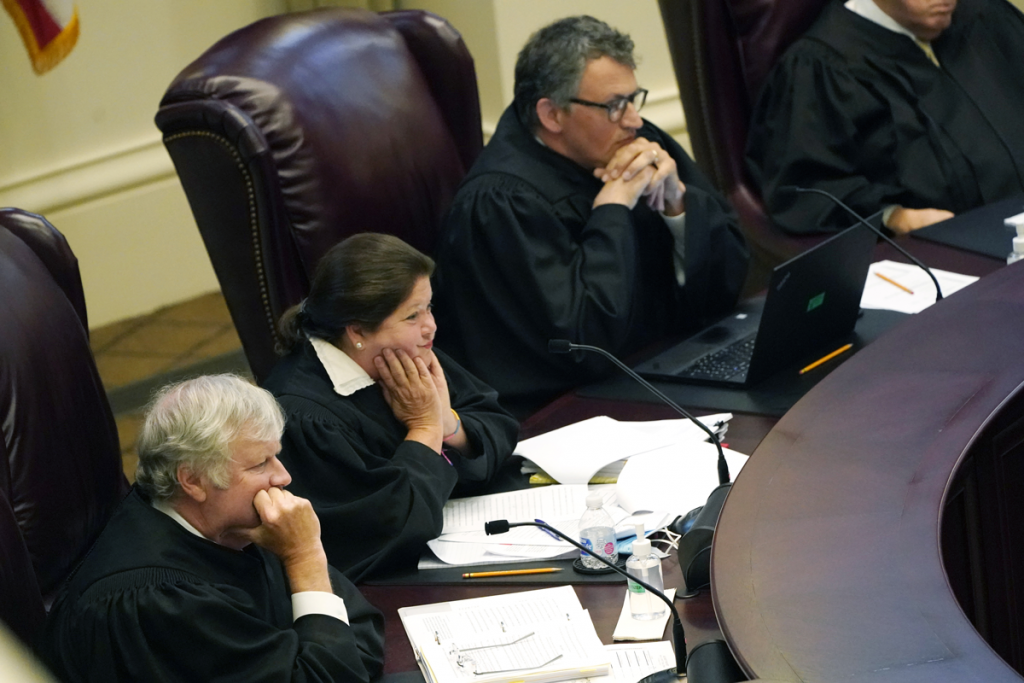
Separately, the lawyer claims, it erred by “retroactively” voiding Initiative 65’s legitimacy on the ballot half a year after voters had already adopted it. McCarthy also argues that, in accordance with its own precedents, it should have deferred to Secretary of State Watson’s judgment about the validity of Initiative 65.
As former Mississippi Gov. Haley Barbour left office in 2012, the motion notes, he issued a number of controversial pardons, including to men convicted of brutal murders of wives and domestic partners, as he had done earlier in his term. When then-Attorney General Jim Hood asked the courts to void Barbour’s pardons based on a technicality, the court refused, despite conceding that Barbour’s pardons may not have complied with a statute’s public-notice requirements.
“While this Court clearly has the constitutional duty to interpret the content of laws passed by the Legislature and executive orders issued by the governor, we decline—as have so many other courts before us—to assume for ourselves the absolute power to police the other branches of government in fulfilling their constitutional duties to produce laws and executive orders, unless their is alleged a justiciable violation of a personal right,” the court ruled in that case.
The lawyer for the citizens asking for a rehearing in the Initiative 65 case argue that, “as in the Barbour decision,” Watson v. Butler “does not raise a justiciable violation of a personal right.”
“Under Section 270, the Secretary of State serves as the office that makes the determination as to whether the initiative signature gathering was sufficient to comply with the relevant constitutional and statutory law,” McCarthy says in the motion for a rehearing. “Based on its review of the signatures, it was the decision by the Office of the Secretary of State to place Initiative 65 on the ballot to be presented to the people for a vote on November 3, 2020.
“… Due to its status as a separately elected office tasked with compliance with the Mississippi Constitution, this Court must defer to this other separately elected office and find that the sponsors of Ballot Initiative #65 complied with the Mississippi Constitution.”
The lawyer also claims that the Court “is legislating from the bench” by “effectively end(ing) the ballot initiative process in the foundational governing document of our state.”
“The United States Supreme Court does not strike down provisions of the United States Constitution: it invalidates legislation and executive actions that conflict with the constitution. Such is the limited role of this court as well. Section 273(3) clearly states ‘The people reserve unto themselves the power to propose and enact constitutional amendments by initiative.’ … In light of the 1922 decision by this court striking down the prior ballot initiative, this reads like a clear warning by the drafters to the Court not to overstep its authority again. And yet, here we are again.”
‘No Cause For The Court To Interject Itself’
McCarthy argues that the court is continuing a pattern it began 99 years ago by striking down constitutional sections “it deems imperfect” to “the severe detriment of the authors of the very constitution it seeks to uphold.”
“And just as before, it has done so when individual members of the Legislature or other elected officials complained because they did not like the specific results of the citizen sponsored initiative process,” the motion for a rehearing says.

Vocal public opponents of Initiative 65 included former Gov. Phil Bryant, who left office in 2019. In December 2020, Mississippi Sen. Angela Hill, Rep. Kathy Chism and Rep. Jill Ford signed a friend-of-the-court brief supporting Mayor Butler’s request to nullify Initiative 65 and the ballot initiative law.
The lawmakers argued that “the Legislature was keenly aware of the effect of the 2000 decennial census” and could have proposed an amendment to update the ballot initiative law if it had wanted. They pointed out that legislators had proposed several bills to update the text of Section 273(3) since 2003.
“Clearly, the Legislature is aware of the issue and has acted numerous times in hopes of addressing it,” the three said in their friend-of-the-court brief. “That the Legislature has not yet succeeded in bringing a proposed amendment before the electorate is no cause for the Court to interject itself into what is clearly a legislative matter.”
‘To Rob The Voters Of A Fundamental Right’
In the May 28 motion for a rehearing, the lawyer for the ballot-initiative campaign volunteers suggested that many in the Legislature simply do not want citizens to have ballot initiatives as an option.
“Elected officials, whether they be the Revenue agent in 1922 or Petitioner, who fears medical marijuana, or the Legislature, who has known of the voters’ desire and efforts to pass medical marijuana for many years through numerous attempted ballot initiatives but refused or failed to act, have glibly tossed the rights of the people under the bus collateral damage all in the service of their own personal interests,” McCarthy’s filing reads.
“The role of the Supreme Court must be one of great deference to the Constitution, flawed or not, and in the interests of all the citizens of the State of Mississippi, not just a few. This unfortunate decision has now allowed elected officials to rob the voters of a fundamental right owned by them, and for the second time it has done so not because a provision became unconstitutional due to later provisions adopted in that constitution, but based on a technicality.”
The motion for a rehearing notes that the initiative process is a difficult one that places far more “very precise requirements upon the initiative sponsor without corresponding requirements for cooperation placed upon other officials whose assistance is necessary.” Still, McCarthy argues, Mississippians “must not be deprived” of the ballot initiative process by “a legally and factually erroneous reading of the matter.”
“Democracy dies, not all at once, but cut by cut and blow by blow,” the motion says. “This court must not now again be responsible for a serious blow to democracy and the death of this right granted to the people.”

